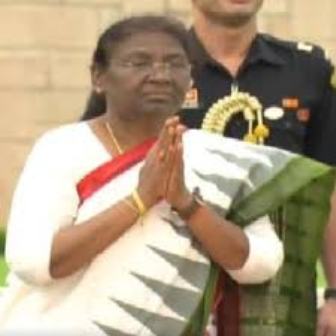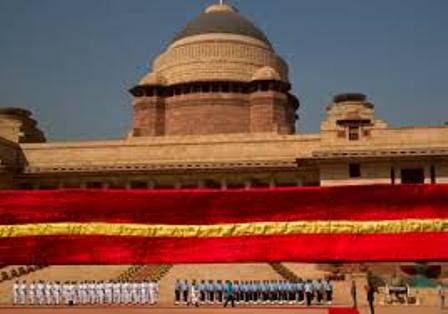Ordinances, pardons, proclamation of emergency and a lot more: Explaining powers of President Droupadi Murmu

NEW DELHI,july 25: The country’s 15th President Droupadi Murmu will have powers to promulgate ordinances, grant pardons and sign proclamation of emergency in states and the country on the advice of the Union Council of Ministers headed by the prime minister.
As the constitutional head, the president is the custodian of the Constitution and is also vested with powers of convening Parliament sessions and acts as the Supreme Commander of the Armed Forces.
Murmu was elected by members of an electoral college consisting of elected members of both Houses of Parliament and Legislative Assemblies of the states in accordance with the system of proportional representation, by means of single transferable vote.
Her term of office will be of five years till July 24, 2027.
The rules allow her for re-election, though the country’s first President Rajendra Prasad has been the only one to get elected for two terms.
The President’s removal from office needs to be in accordance with the procedure prescribed in Article 61 of the Constitution.
The President can resign by writing a resignation addressed to the Vice-President.
The executive power of the Union is vested in the President, and can be exercised by Murmu either directly or through officers subordinate to her in accordance with the Constitution.
According to constitutional provisions, the President also has the power to dissolve the Lok Sabha, based on the decision of the Union Cabinet.
She can promulgate ordinances at any time, except when both Houses of Parliament are in session.
She can also make recommendations for introducing financial and money bills and give assent to bills, grant pardons, reprieves, respites or remission of punishment or suspends, and remit or commute sentences in certain cases.
When there is a failure of the constitutional machinery in a state, she can assume to herself all, or any of the functions of the government of that state.
The President can proclaim an emergency in the country if she is satisfied that a grave emergency exists, whereby the security of India or any part of its territory is threatened, whether by war or external aggression or armed rebellion.
-PTI






